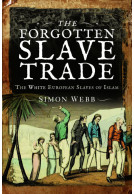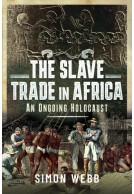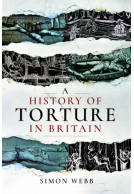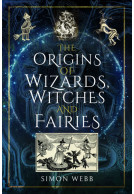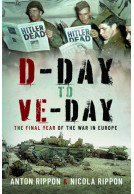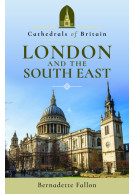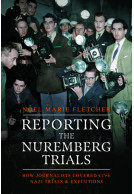1919: Britain’s Year of Revolution (Paperback)
Imprint: Pen & Sword History
Pages: 184
Illustrations: Integrated 8 page plate section
ISBN: 9781399011396
Published: 11th March 2022
National Publicity
As featured on Mail Online and the Daily Express website
(click here for international delivery rates)
Need a currency converter? Check XE.com for live rates
| Other formats available | Price |
|---|---|
| 1919: Britain’s Year of Revolution eBook (4.9 MB) Add to Basket | £6.99 |
1919; Britain’s Year of Revolution tells the story of an almost unknown passage in British history. On the August Bank Holiday that year, the government in London despatched warships to the northern city of Liverpool in an overwhelming show of force. Thousands of troops, backed by tanks, had been trying without success to suppress disorder on the streets. Earlier that year in London, 1000 soldiers had marched on Downing Street, before being disarmed by a battalion of the Grenadier Guards loyal to the government. In Luton that summer, the town hall was burned down by rioters, before the army was brought in to restore order and in Glasgow, artillery and tanks were positioned in the centre of the city to deter what the Secretary of State for Scotland described as a ’Bolshevik uprising’. Industrial unrest and mutiny in the armed forces combined together to produce the fear that Britain was facing the same kind of situation which had led to the Russian Revolution two years earlier.
Drawing chiefly upon contemporary sources, this book describes the sequence of events which looked as though they might be the precursor to a revolution along the lines of those sweeping across Europe at that time. To some observers, it seemed only a matter of time before Britain transformed itself from a constitutional monarchy into a Soviet Republic.
Rating: 5 out of 5 stars
NetGalley, William Harris
My most immediate reaction to the text was fascination. There have been any number of books focusing on events in Europe and the world at the conclusion of the First World War. This one, however, is, in my experience, unique. The author examines the revolutionary tide that swept Europe, initially in the collapse of Tsarist Russia, but he focuses on the peculiarly British experience of this, one that contrasts wildly with, for example, the widespread mutinies in the French Army in the final years of the war. In the case of Great Britain, the principal factors in play were the Allied intervention in Russia as well as the government's initial, deeply flawed, plans for demobilization. These were the primary factors in the widespread unrest amongst the British Armed Forces at the conclusion of WWI. Worse, widespread social disparities, many of them deeply rooted in conditions which had been glossed over in the name of national unity during the war, suddenly became quite prominent in the growth of organized labor and its unprecedented willingness to use strikes, particularly general and sympathy strikes, as a means of effecting political, military and social reform. The focus in this text is not so much on the actual events that occurred as it is in the analysis of the political response to and planning for dealing with events on the ground. Lloyd George figures prominently as a central figure in his pragmatic approach to dealing with events as they occurred. I have never really encountered anything quite like this approach to what happened. It is, for example, clear that the principal figures in His Majesty's Government had paid close attention to the ways that Bolshevik and Soviet propaganda had been met by the Tsarist and later Kerensky governments. Specifically, the British noted the failure of loyal troops to come to the assistance of their respective national governments, be they Tsarist or Menshevik. British analysis of what had happened in St. .Petersburg is shown in this text to be clearly linked to their analysis of what had happened with a view towards how it might influence the British political response to similar events in Great Britain. As a direct consequence of their perceptions of events in Russia and later in Imperial Germany, as it collapsed, the British authorities reassessed their commitment to intervention in Russia with an eye towards preventing the kind of social disruption that both Russia and Germany had experienced. Anyone interested in assessing the British response to revolutionary events on the continent and the way in which they used their assessments and understandings, sometimes flawed, to shape and control events in Great Britain would be well advised to read this highly informative and well thought out text.
This is a really interesting book on a subject not covered much and it’s not really surprising why given that the British government sent tanks on its own people after they’d just won a war for them. Simon Webb much covers this year and how much happened in it and he has done so in a engaging and really interesting style, it’s informative and easy to follow. Thoroughly recommended for people who like history and those who mightn’t know about this period of uprising and how the public were treated.
NetGalley, Tara Keating
Rating: 5 out of 5 stars
NetGalley, Chris Hallam
We all know the story. Or do we?
In 1917, Russia rose in revolution. The Tsar was overthrown and the Bolsheviks soon took over as Russia pulled out of the First World War. The following year, the German people rose up against the Tsar's cousin, the Kaiser Wilhelm II. Germany surrendered. Britain won the war and moved seamlessly into a graceful new post-war era of peace, right?
Well, no. As Simon Webb's book reminds us, while much of this narrative is true, in reality things were not quite so simple.. In 1919, there were widespread mutinies in the army. Tanks were deployed on British streets to crush workers' uprisings. Martial law was imposed in Luton. A police officer was beaten to death in a riot. The Royal Navy was engaged to occupy a British port as it came close to succumbing to mob rule.
Webb's' book is thorough about a frightening period during which the Coalition government of David Lloyd George became convinced Britain might be about to experience its own form of Bolshevik-style insurrection. Ironically, the determination of some members of the government - specifically an ambitious young Winston Churchill - to send already war-weary British troops to fight alongside White Russian armies clashing with Bolshevik forces in the Arctic made revolution at home far more likely, not less.
It couldn't happen here? Turns out, it very nearly did.
As featured in
Nautilus Telegraph
A fantastic insight into the tumult that existed as the British ruling class pushed back against the unrest which World War One and the Russian revolution had unleashed.
The Socialist
A very worthy book which would appeal to a wide audience, and would make a fine documentary.
Hellbound - Steve Earles
Read the complete review here.
All in all, it is an extraordinary tale that is well told with a clear and readable style. Webb makes a convincing case for the idea that a revolution might have been on the cards in this country a year after the Great War ended, however fanciful this might seem to some readers.
Battlefield, Spring 2017 - reviewed by Christopher Newould
An extraordinary tale that is well told with a clear and readable style.
The Battlefield Trust
Read it for: A story of unrest and uprising in the aftermath of World War 1
Your Family History, April 2017
As featured in.
The Daily Mail 14/2/17
As featured in.
The Daily Express 14/2/17
'As ever, Webb proves himself to be a consummate researcher, turning back time to allow modern readers to develop an understanding of past events. With so much focus on World War I in recent years due to centenary commemorations, it's fascinating to see how the conflict shaped and changed the country.'
Essex Life Magazine
Well written, and easy to read though packed with numerous facts and circumstance the author achieves well his aim of giving an understanding of the events and consequences of the year of potential revolution, 1919.
Oxford & Cambridge Club Military History Group
I have always wondered wy Britain didn't have a revolution along the lines of the one that took place in Russia in 1917 - it seems that we almost did! Simon Webb's fantastic book draws on contemporary accounts and describes unrest on a scale that I was totally unaware of. Superb history!
Books Monthly, December 2017 – reviewed by Paul Norman
1919: Britain’s Year of Revolution is a lively book, tidily written and covering a wide area of activity in a brisk but informative way. It manages to convey the mood of the period, including the paranoias of Winston Churchill and some other members of the establishment, in an entertaining manner. And it tells how Churchill and certain people in the armed forces got close to treason by plotting the overthrow of the Prime Minister, Lloyd George. Churchill had expressed admiration for Mussolini’s rise in Italy, and it makes one wonder what this country may have been like had his conspiracies succeeded.
Penniless Press, Jim Burns
Read the full review here.
As featured in.
Bookseller 08.07.16
About Simon Webb
Simon Webb is the author of a number of non-fiction books, ranging from academic works on education to popular history. He works as a consultant on the subject of capital punishment to television companies and filmmakers and also writes for various magazines and newspapers; including the Times Educational Supplement, The Daily Telegraph and The Guardian.









